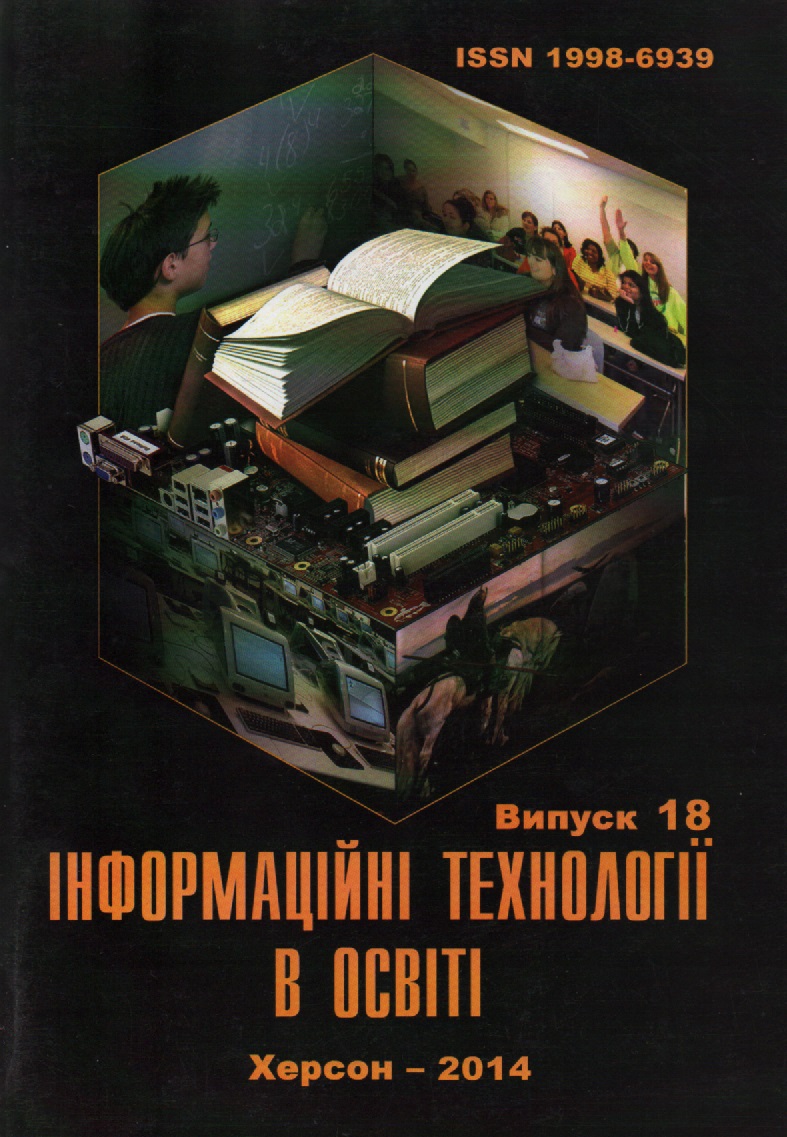USE OF INFORMATION TECHNOLOGY IN RESEARCH WORK OF FUTURE SOFTWARE ENGINEERS
DOI:
https://doi.org/10.14308/ite000476Keywords:
Google Sholar, information technology, ratings, research groups, Scientometrics base, ScopusAbstract
The article describes practical cooperation experience of Kherson State University’s lecturers group and students on software creation for automation, selection and processing of information about the universities scientists publication on the Internet. Recently, much attention is paid to scientometric bases by scientific societies of Eastern Europe. Large number of countries creates their own scientometric bases, platforms and other services. Working on familiar projects the future software engineers can be ready to implement similar tasks as for own country and for the world leaders. The result of research group work should be creation of software tools to support the business processes of research activities at the university. The involvement of students in research work allows using their creativity and employment potential for solving urgent problems of university, raising research competence of students’ professional skills in computer science and software engineering, which are involved in design and development of real software product. Participation of students in each stage is essential element of research group work. While creating software, students receive not only theoretical and practical knowledge of research work but also enhance their professional competences, as projects implementation is the closest to the professional software engineer’s work.
Downloads
Metrics
References
1. Вернидуб Р.М. Організація науково–дослідної роботи учнів/ Р.М. Вернидуб, Ю.І. Завалевський, Ж.Г.Петрова. – Тернопіль: Мандрівець, 2010. – 368с.
2. Вища освіта України і Болонський процес: Навчальний посібник / За редакцією В.Г. Кременя. – Тернопіль: Навчальна книга – Богдан, 2004. – С. 171.
3. Микитюк О.М. Теорія і практика організації науково-дослідної роботи у вищих навчальних закладах освіти України в ХІХ ст..: Автореф. дис. доктора пед. наук /Інститут педагогіки АПН України,К., 2004.-42с.
4. Офіційний сайт наукометричної платформи Google Scholar - [Інтернет ресурс]- Режим доступу: http://scholar.google.com/
5. Офіційний сайт наукометричної бази даних Scopus - [Інтернет ресурс]- Режим доступу: http://www.scopus.com
6. Петухова Л.Є. Теоретико-методичні засади формування інформатичних компетентностей майбутніх учителів початкових класів: дис. … доктора пед. наук: 13.00.04 / Любов Євгенівна Петухова. – Одеса, 2009. – 564 с
</uk>
<en>
1. Vernidub R.M. OrganIzatsIya naukovo–doslIdnoYi roboti uchnIv/ R.M. Vernidub, Yu.I. Zavalevskiy, Zh.G.Petrova. – TernopIl: MandrIvets, 2010. – 368s.
2. Vischa osvIta UkraYini I Bolonskiy protses: Navchalniy posIbnik / Za redaktsIEyu V.G. Kremenya. – TernopIl: Navchalna kniga – Bogdan, 2004. – S. 171.
3. Mikityuk O.M. TeorIya I praktika organIzatsIYi naukovo-doslIdnoYi roboti u vischih navchalnih zakladah osvIti UkraYini v HIH st..: Avtoref. dis. doktora ped. nauk /Institut pedagogIki APN UkraYini,K., 2004.-42s.
4. OfItsIyniy sayt naukometrichnoYi platformi Google Scholar - [Internet resurs]- Rezhim dostupu: http://scholar.google.com/
5. OfItsIyniy sayt naukometrichnoYi bazi danih Scopus - [Internet resurs]- Rezhim dostupu: http://www.scopus.com
6. Petuhova L.E. Teoretiko-metodichnI zasadi formuvannya Informatichnih kompetentnostey maybutnIh uchitelIv pochatkovih klasIv: dis. … doktora ped. nauk: 13.00.04 / Lyubov EvgenIvna Petuhova. – Odesa, 2009. – 564 s.
</en>
Downloads
Published
How to Cite
Issue
Section
License
This work is licensed under a Creative Commons Attribution-NonCommercial-ShareAlike 4.0 International License.






























